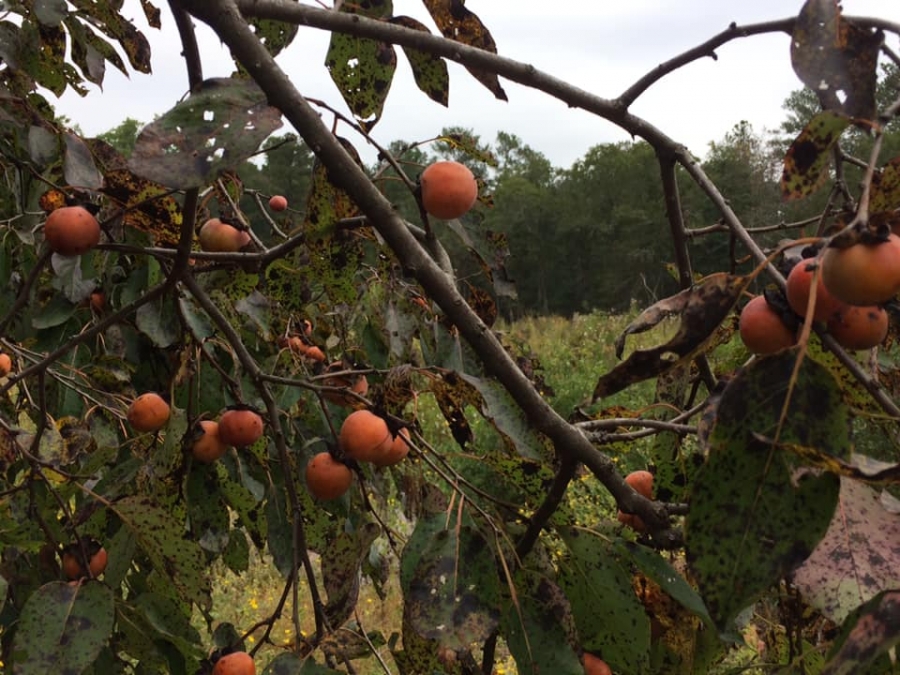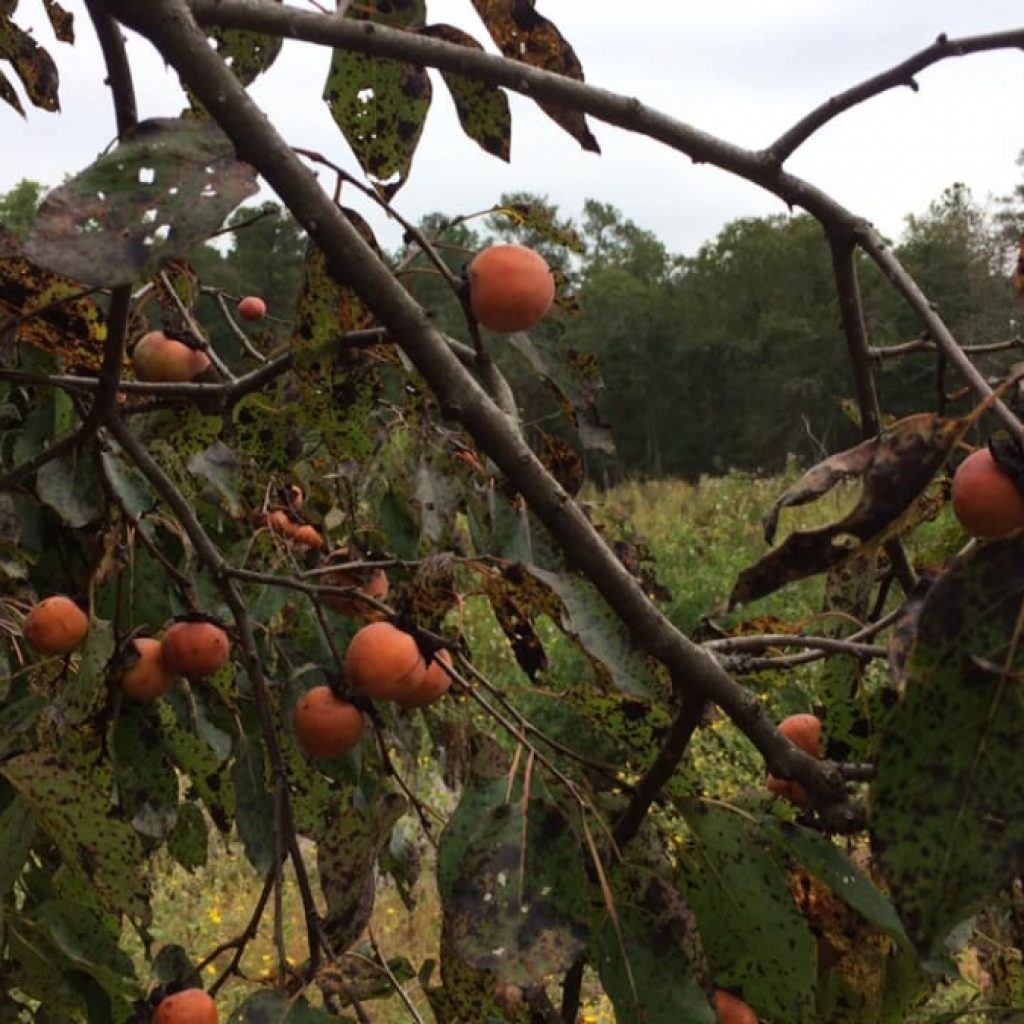
The common persimmon in America is known by many names — Possum Apples, sugar plum, and just plain ‘simmons. The proper name or scientific name is Diospyros Virginian.
Although some persimmons are native to China and Japan, our country has long had its own variety of the delicious fruit. For generations, Native American ate the fruit but it was first documented by Hernando de Soto on his expedition throughout the southeastern U.S.
Native Americans used the fruit of the persimmon trees to make bread, treat burns, and even make a drink or tea out of it. White settlers in our great country would use persimmons to make beer, wine, and what we know today as “good ol’ ‘simmon pudding”
During the American Civil War, Confederate troops — who were short on rations most of the time — ate persimmons along their long marches and even ground up the seed to make a type of coffee. The Rebs soon began calling them the “Fruit of the Gods.”
Persimmon trees need plenty of sun and therefore can be found growing along ditch banks, in pastures, and along the edges of forests. They are found in all one hundred counties of North Carolina.
How many of us have been persuaded to eat a half-ripe persimmon? Why, you will never forget how they make your mouth pucker and how you quickly spit it out. ‘Bout the only thing I’ve found to do with an unripe persimmon is to shoot it in a slingshot.
Why, it seems a persimmon is not fully ripe until it gets super soft, mushy, and a little wrinkled. A ripe persimmon will be a deep orange in color and have a few black spots on its skin. Don’t never discard a persimmon because it has black spots on it. No sir, it’s just sometimes the weather causes these blotches to appear on the fruit.
According to folklore, if you crack open a seed from a ripe persimmon and look inside, it can predict the weather:
- fork shape = winter will be mild
- spoon shape = there will be a lot of snow
- knife shape = winter will be bitterly cold (cuts like a knife).
If you would like to plant a persimmon tree in your yard, again make sure that it can get plenty of sunlight. The tree will start to bear after three to five years and has a life span of around 60 years. Caution: only a female tree bears fruit.
Humans are not the only ones who like persimmons in their diet. Why, it seems possums, raccoons, deer, rodents, and numerous birds will travel miles to get to get to a persimmon tree filled with its ripe fruit.
A lot of folklore and even songs have been told or written about persimmons. One such tune went a little like this: “Possum up a ‘simmon tree, raccoon on the ground. Possum up a ‘simmon tree, shaking them ‘simmons down.”
When I was a boy, my grandma and uncle showed me every persimmon tree on our farm. We would check the trees regularly to see if the persimmons were ripe.
When the time was right, Ma would take a sheet and lay it on the ground under and around the ‘simmon tree. I would then shimmy up the tree and start shaking the ripe fruit off.
When the ripe persimmons hit the ground, Ma would place them in her apron. When she thought she had enough for a ‘simmon pudding, she would say, “Boy, you can come on down now, we got enough for today.”
Our next step would be to take the stems off and wash any sand that might have clung to the persimmons.
The next process was to place the persimmons in a cone shaped colander and place a flat pan under it. Then, by pressing down with a round wooden mallet, we could squeeze out the pulp without the seed getting into it. Some folks that like persimmons as good as I do, call this golden orange pulp “Sandhill Gold.” It takes about two cups of pulp to make a good-size pudding.
So, if’n you take a notion to make yourself a persimmon pudding, the trees are full this year. Here’s a great little easy recipe that I got from Mrs. Patsy Webb of Ellerbe.
Persimmon Pudding
2 cups of persimmon pulp
1 teaspoon of cinnamon
3 eggs
One half teaspoon of nutmeg
One half cup of self-rising flour
1 can of Pet milk
2 cups of sugar
A pinch of salt and baking soda
1 stick of melted butter
Mix all ingredients together and pour in a 9×13-inch baking dish.
Bake at 325 degrees for about 55 minutes or until a toothpick comes out clean.
Remove from oven, let it rest about five minutes while you call me over to help enjoy one of life’s little pleasures.
J.A. Bolton is author of “Just Passing Time,” co-author of “Just Passing Time Together,” and just released his new book “Southern Fries: Down-Home Stories” all of which can be purchased on Amazon. Contact him at ja@jabolton.com.


